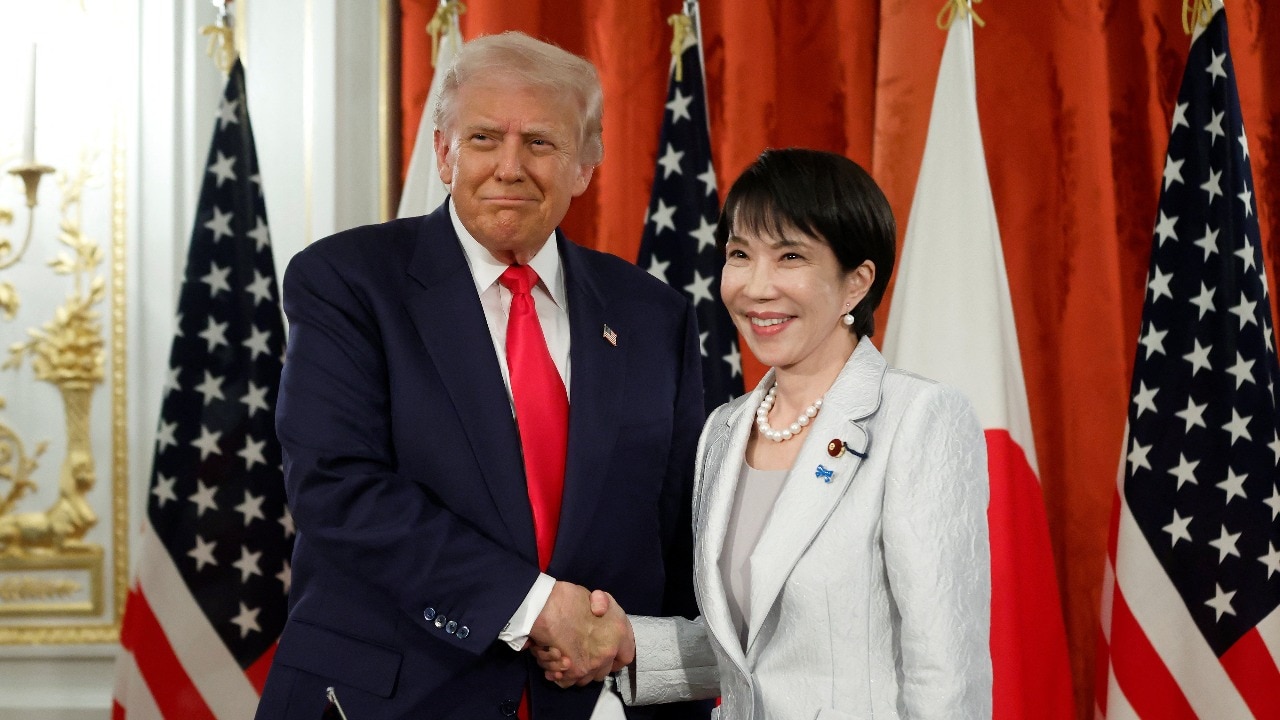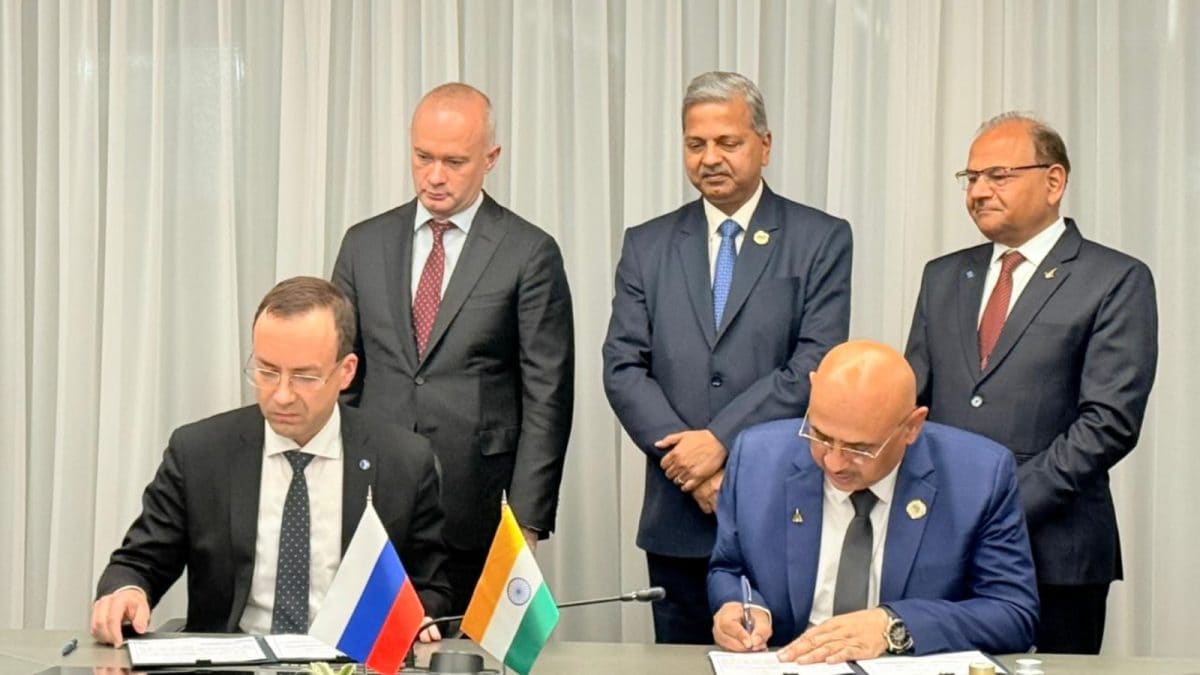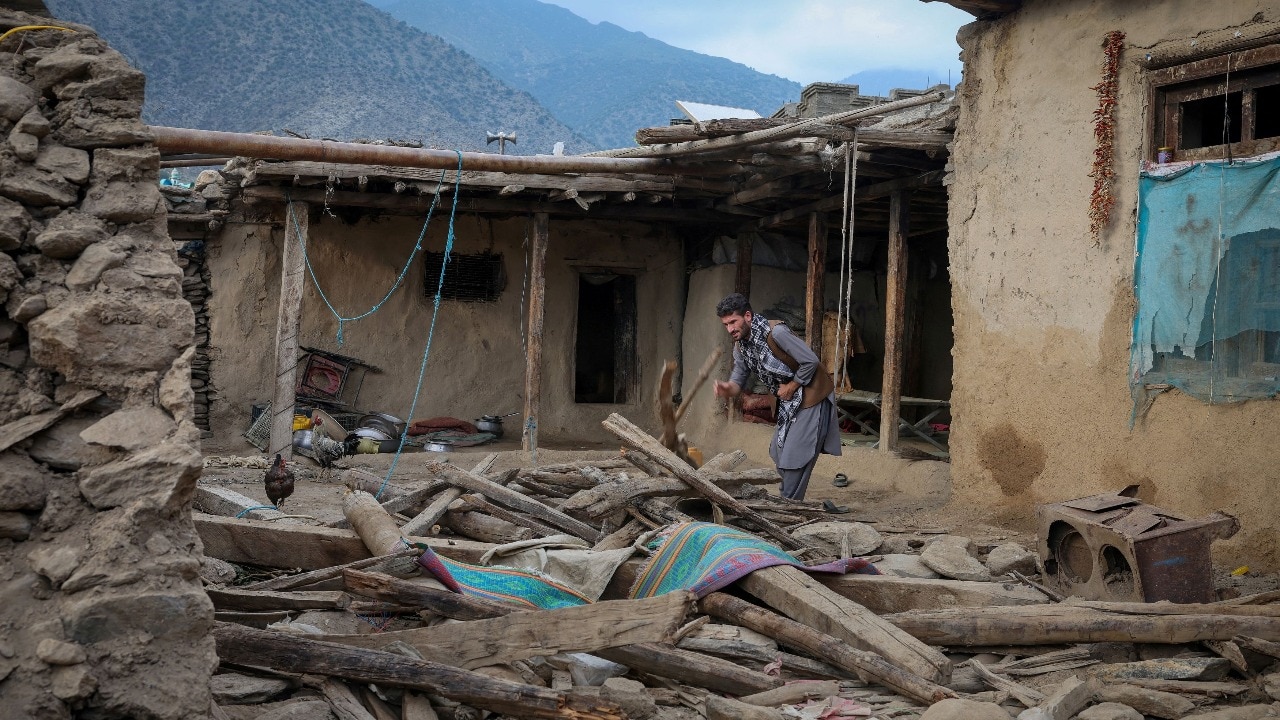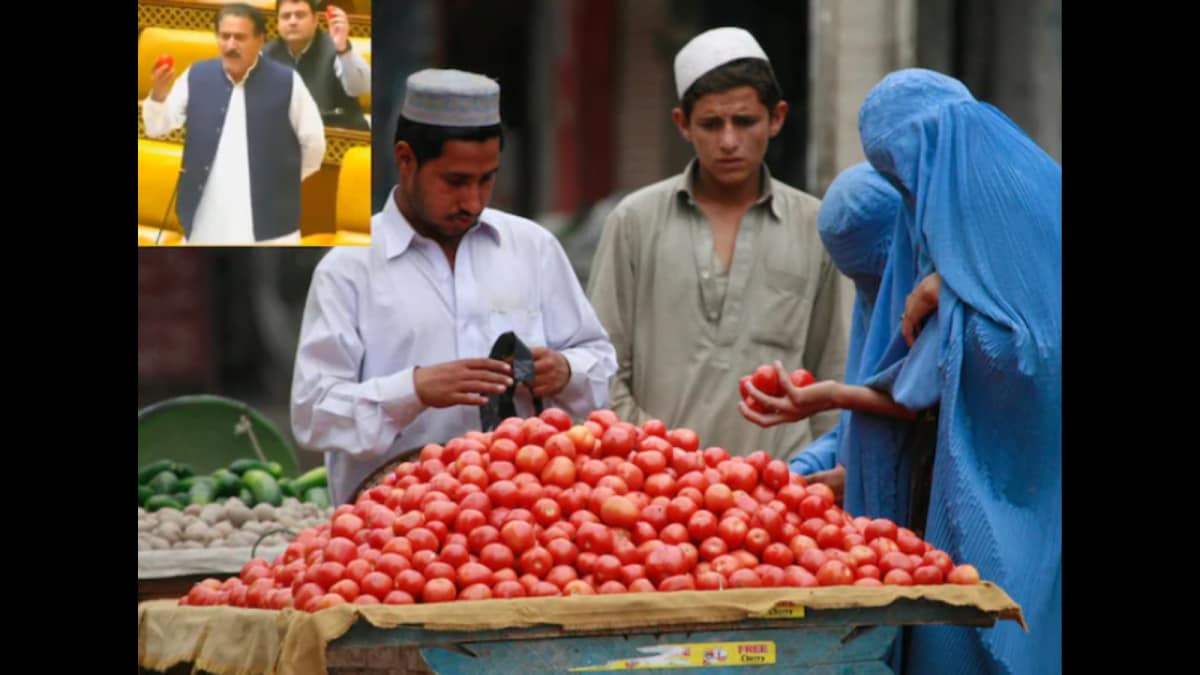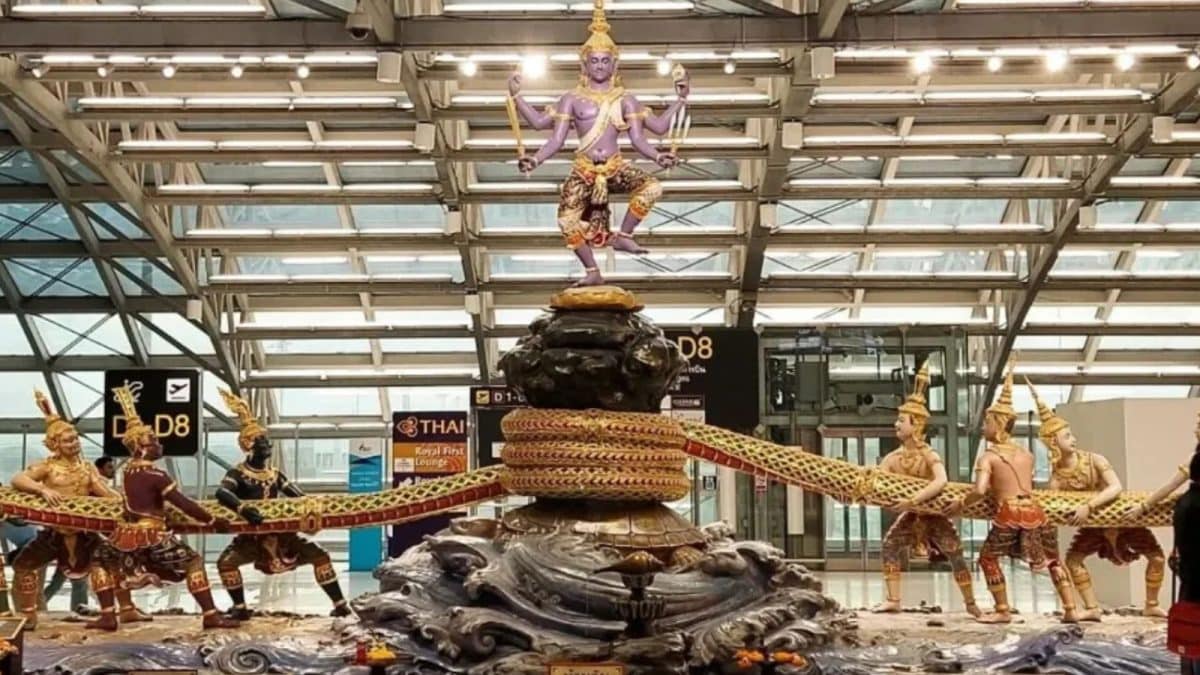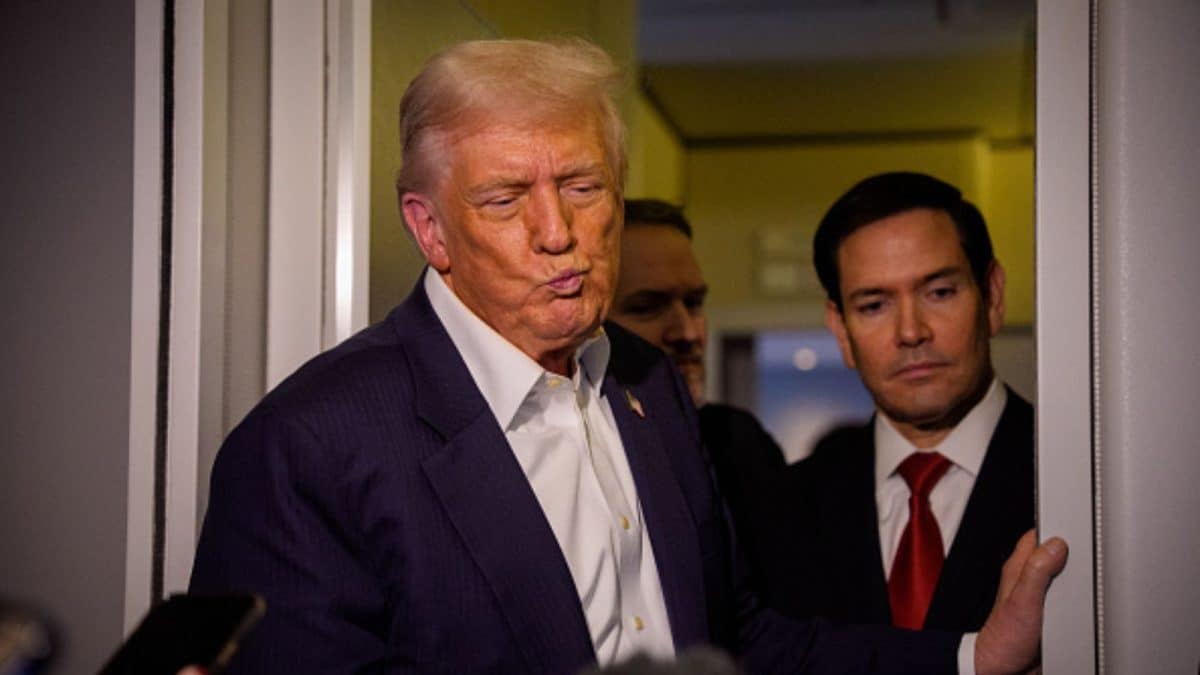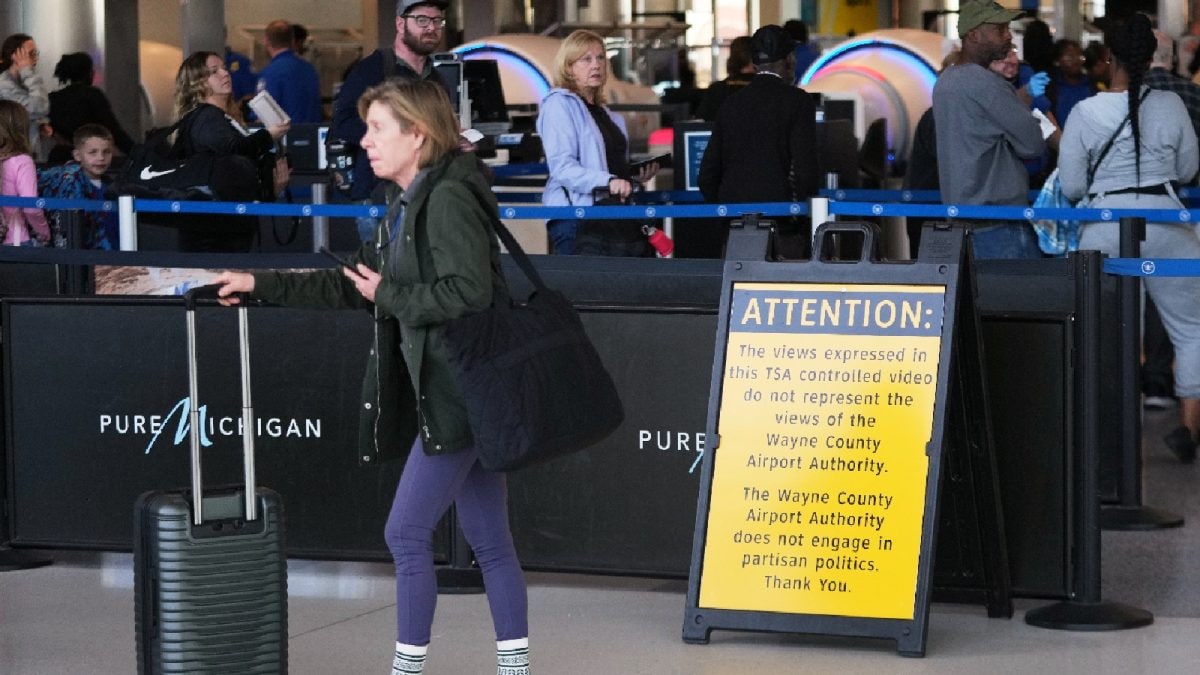Amid strained ties between India and Bangladesh, Pakistan has moved swiftly to seize the opportunity and offered Dhaka the use of its Karachi port. The timing of the move is crucial, coming weeks after India banned import of jute products.

Shipping containers are seen at the Karachi port
At a time when strained India-Bangladesh ties have tightened the screws on bilateral trade, Pakistan has spotted an opening as it warms up to Dhaka. On Monday, Pakistan courted Bangladesh with a trade lifeline — offering the use of its Karachi port for the export of jute products and other goods. The timing is crucial, coming weeks after India slammed the door on overland imports of Bangladeshi jute.
The deal was reached as Pakistan and Bangladesh, amid a newfound bonhomie, held the Joint Economic Commission (JEC) meeting in Dhaka after a two-decade gap. It marked the revival of Bangladesh's economic relationship with Pakistan, a nation from which it had waged a bloody independence struggle in 1971.
PAKISTAN'S KARACHI PORT OFFER
Sensing an opportunity amid deteriorating India-Bangladesh ties, Pakistan has offered Bangladesh the use of the Karachi port, giving it a gateway for trade with countries such as China, the Gulf, and Central Asian nations.
Several experts have argued that the maritime link was not economically viable. Last year, for the first time in over five decades, a Pakistani cargo ship docked at Bangladesh's Chittagong port.
However, the route is not cost-effective, with the 2,600 nautical miles-long journey taking around two weeks to complete. Since then, there has been little movement on this front.
Thus, the move is being seen as more of an optics to geopolitically challenge India.
Moreover, Pakistan has also decided to reduce taxes on jute and certain other products to help Bangladesh enhance jute exports, according to Bangladeshi media reports. Earlier this year, Pakistan already removed the 2% customs duty on jute imports from Bangladesh.
It is well known that Bangladesh, the world's second-largest producer of jute, is a leading exporter of raw jute and jute products.
"Pakistan is interested in importing jute and jute goods from Bangladesh, as the South Asian nation is strong in jute and textiles. Bangladesh wants to export products like jute and others," an official aware of the details of the meeting told The Financial Express Bangladesh.
On the other hand, Pakistan has requested expedited market access for mango exports to Bangladesh, eyeing the gap left by declining India's mango exports to Dhaka.
Bilateral trade between the two nations has always been low and tilted towards Pakistan. Of the $865 million worth of bilateral trade in the 2024-25 fiscal year, Pakistan exported about $778 million. Jute and jute products account for about 38% of Bangladesh's exports to Pakistan.
INDIA BANS IMPORT OF BANGLADESHI JUTE
Pakistan's emphasis on cooperation with Bangladesh on jute, however, is not out of the blue. The development comes weeks after India banned the import of select jute products and ropes from Bangladesh through all land routes in August.
Previously, India banned the import of woven fabrics and ready-made garments from Bangladesh via land routes. Instead, these items are allowed to enter via the Nhava Sheva Seaport in Navi Mumbai - making it unviable for Bangladeshi exporters.
Moving goods via sea, rather than across the land border, will significantly raise the costs for the Bangladeshi exporters.
Tensions escalated further after India cancelled a transhipment agreement that allowed Bangladeshi goods to move through Indian ports to other countries.
Until now, India has been one of the top importers of Bangladeshi jute and related products. The series of measures taken by India will likely make Bangladeshi jute products less competitive in the Indian market.
The numbers show the impact. Following the move by India, Bangladesh's export earnings from the sector reportedly dipped to $3.4 million in July, down from $12.9 million during the same month in 2024.
Bangladesh responded by stopping yarn imports from India through the five key land ports.
Ties between India and Bangladesh started to worsen following the fall of the Sheikh Hasina regime last year after a violent student-led protest. For 15 years, Hasina cultivated close ties with India.
However, Muhammad Yunus's takeover as the interim head of Bangladesh saw a political shift in Dhaka. Yunus has reshaped Bangladesh's foreign policy, warming up to previously estranged partners like Pakistan and China.
Pakistan has been the most enthusiastic, moving swiftly to seize the opportunity. The proposal to Bangladesh to use its Karachi port is just one of them.
- Ends
Published By:
Abhishek De
Published On:
Oct 28, 2025

 3 hours ago
3 hours ago

